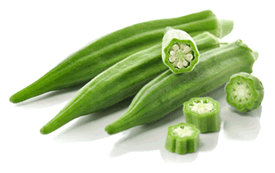 “Those who act with bravery and courage will overcome diseases.” ~ Inner Classic of TCM
“Those who act with bravery and courage will overcome diseases.” ~ Inner Classic of TCM
On my recent annual trip to Tassajara Zen Mountain Center, I was so thoroughly enjoying the perfect peacefulness of the early evening and the pure bounty of nature, when there was a mishap. Somehow, while walking towards my cabin, the end of a branch jammed itself into my big toe, underneath the cuticle. OwOwwOwww!!! You might not know this about me, but I’m such a baby when it comes to these things! I really don’t like pain (that’s why I’m such a good acupuncturist). I immediately started thinking the worst: I’m going to lose my nail, I’m going to be in pain, I’m going to develop an infection out here in the wilderness.
Of course, none of that happened. It was indeed an act of bravery on my part as I dislodged all the foreign matter from underneath my big toe nail (you have no idea!). My immune system took over (with a little help from soap & water, peroxide and neosporin; and later, the hot mineral baths and coconut oil). The initial pain told me that there was an invader that broke through the skin. Then the blood pushed out any bacteria from the site of the wound. The slight swelling revealed my body’s inflammatory response to the intrusion. Clotting factor quickly closed up the wound. White blood cells and fibrin went to the area and created a scab.
In the long run, all is well. Being at Tassajara helped me to be very zen about it, and the wound healed rather quickly. In fact, the branch punctured a couple of very applicable acupuncture points (Yin Bai/Spleen 1 & Da Dun/Liver 1) which helped me to chill out even more. Needless to say, I very much enjoyed my time away – as usual!
So after that long introduction, let’s look at your amazing immune system. The immune system is made up of several components, comprising your body’s natural defense system. Those components are:
- White blood cells
- The entire digestive system, including the intestines
- The lymphatic system
- Certain organs, such as the lungs, liver and spleen
- The endocrine system, including the pituitary, thyroid and adrenals
- The skin
Sometimes we think the immune system is limited to warding off colds and flu. In reality, your immune system works in a variety of scenarios:
- Any kind of pathogenic factor that may invade the body, including bacteria, viruses, fungi, molds, etc. In Asian medicine, these pathogenic factors include wind, cold, heat, dampness, dryness and fire.
- Any injury, for example surgery, accidentally slicing your finger instead of the zucchini, or getting bruised during kick-boxing class.
- Allergies, including environmental sensitivities – pollen, ragweed, alfalfa, dust, cigarette smoke, vehicle exhaust fumes – the list is very long.
- Diet and poor nutrition – sensitivities to certain foods, chemicals and food colorings, preservatives, excito-toxins, packaged-fast-convenience (non)foods.
- Emotions and stress – anything that causes undue stress and/or unbalanced emotions can activate the immune system.
Generally, the immune system becomes “activated” or stimulated by detecting some sort of invader in the body, whether from the external or internal environment, and immediately going to work to rid the body of the offending substance. White blood cells are considered the body’s first line of defense, including granulocytes, lymphocytes, and monocytes. It is in this collection of white blood cells that normally all types of invaders are neutralized and/or destroyed. Of course, this explanation is a gross simplification of the process that the body and its immune system go through to keep the body alive and maintain balance; it’s much too complicated to go into further detail here. The idea is that the immune system makes sure the body stays healthy and maintains homeostasis.
The immune system is very sensitive in detecting detrimental invaders. In fact, it can, in some cases, go into attack mode when it seems there is nothing to attack. This is when diseases like lupus, multiple sclerosis, rheumatoid arthritis, Crohn’s disease, and Hashimoto’s thyroiditis can develop.
These and many others are known as auto-immune diseases, where the body’s immune system “attacks itself.” Auto-immune diseases are often caused by a combination of factors, including (but not limited to) allergies, viral infections, dietary imbalances, exposure to toxins, stress, and endocrine imbalances. Know that this is not a default of the immune system; your body is indeed very intelligent. Once you give your body what it needs (and take away what it doesn’t need), the inflammation often abates and the imbalance goes into remission.
How can you best care for your immune system as naturally as possible?
- Eat good food. Nutritious food, made from wholesome ingredients and balanced for your body, will help ensure a healthy immune system.
- Get good rest. This is critical, as your body repairs itself during periods of rest and sleep.
- Exercise. This circulates not only the blood and cardiovascular system, but aids the lymphatic and other waste systems to eliminate wastes from the body.
- Get Acupuncture treatments. This is a great therapy to balance the immune system. Because acupuncture breaks the skin in very specific sites, the body will go into self-healing mode, targeting the organs and/or meridians accessed by the acupuncture needles. Also, herbs and supplements may be prescribed at this juncture to enhance the acupuncture treatments.
- Detoxify Regularly. Cleansing and detoxifying your body once or twice a year not only jumpstarts weight loss and balances the body overall, this practice also keeps inflammation at a minimum and ensures a more balanced, strong immune system.
- Manage stress. Deep breathing, meditation, Tai Chi, and Yoga are all helpful. Notice other ways to find and/or create happiness & joy in your life.


Connect With Us